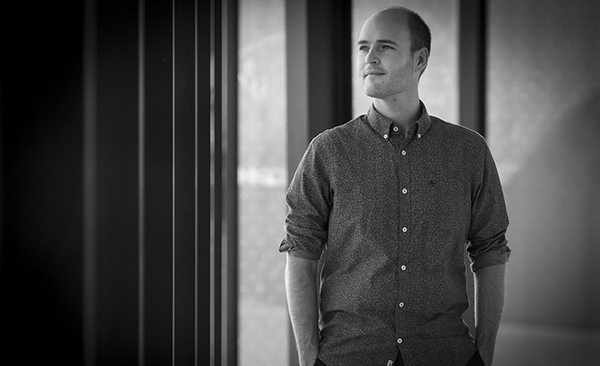

University of Guelph-Humber Kinesiology alumnus Jeffrey Vdovjak had just finished the final exam of his final year. Instead of relaxing, just days after wrapping up a challenging semester Vdovjak decided to drop everything to volunteer on the front lines of the COVID-19 outbreak.
Vdovjak has been working as a Personal Support Worker on the a COVID-19 floor of a long-term care facility in Toronto (one that was among the Top 10 hardest-hit by the outbreak, with many staff having already contracted the virus). Volunteering meant turning away a job opportunity for the summer and spending months away from his boyfriend, but Vdovjak simply couldn’t refuse the urge to help in some way.
“What else was there to do?” Vdovjak said. “I decided that ‘anyone’ could do my job but that the need was greatest on the front lines.
“Some of our seniors had to go to war – and if this is my generation’s ‘war,’ then it was my turn.”
Each day, Vdovjak wakes up at 5 a.m. before going into work to suit up in full personal protective equipment, which he says he’s grateful for. Though he is unable to perform the full range of PSW duties, he makes residents feel comfortable, responds to their needs, helps feed them, changes briefs, and provides companionship to people who are completely isolated and scared.
In fact, every free moment that Vdovjak finds, he sits down and talks with a resident.
This, of course, has not been easy work. In each of the first five days Vdovjak volunteered, a resident at his facility died.
“First thing, I do my first rounds and check to make sure everyone is still with us. Most mornings the first week someone passed overnight. It’s difficult, because you form relationships,” he reflected. “You learn about their families, and you imagine how difficult this time must be.”
Vdovjak says the experience has helped him to communicate better. He is working with geriatric patients who are trying to hear what he is saying through two layers of PPE, so he has learned to speak slowly, directly and loudly and to find other ways to express himself.
Vdovjak has found the work deeply rewarding overall, and he’s managed to find methods to cope with the more challenging elements.
“No matter how difficult it gets at work – and yes, there are really hard days, and there may be trauma to deal with after I’m done – but every day I come home to some normalcy. A phone call with my boyfriend, a TV show, a glass of wine, and a warm bed.”
Finding a career helping people
Vdovjak has always been motivated to find ways to help those in need. He spent a year in Ecuador volunteering at an orphanage teaching English and computers, helping students to understand the technical components and how the machinery operated. He also spent more than six months living in Haiti, working as a foreman for a medical dormitory for visiting physicians, EMTs and nurses.
That same instinct led him to the University of Guelph-Humber as a mature student.
“I got into Kinesiology because I wanted to help people more directly.”
In fact, Vdovjak says the highlight of his experience volunteering during the pandemic has been getting to know people from a generation that he had not interacted with much in the past.
“I’ve learned that our seniors are incredible — I’ve never a lot of seniors in my life (I have never had a grandpa and my grandmas lived far away). They are filled with the stories you hope you will accumulate — stories like serving as a nurse in World War II, of grand gestures of love, and compassionate gifts to others. They are easy to talk to and incredibly gentle and kind,” he reflected.
“We have a lot to learn about our seniors and I really hope that we begin to treat them the way that we should – with love and respect; the way they have always treated us. Working in a long-term care facility I can see what we’ve hidden; that we don’t care for our seniors like we should.”
Now that he has graduated, Vdovjak – who has published research as a UofGH student – plans to pursue a Master’s degree, either in counselling or family therapy.
And after this recent experience he’s gone through, he also sees himself continuing to volunteer with the senior population.
“In the future, I think that I will be visiting local long-term care facilities to visit with seniors,” he said.
“As I have learned from most of the ‘charitable acts’ that I have done in life: I will get at least as much back as I put in and, most likely, so much more.”







